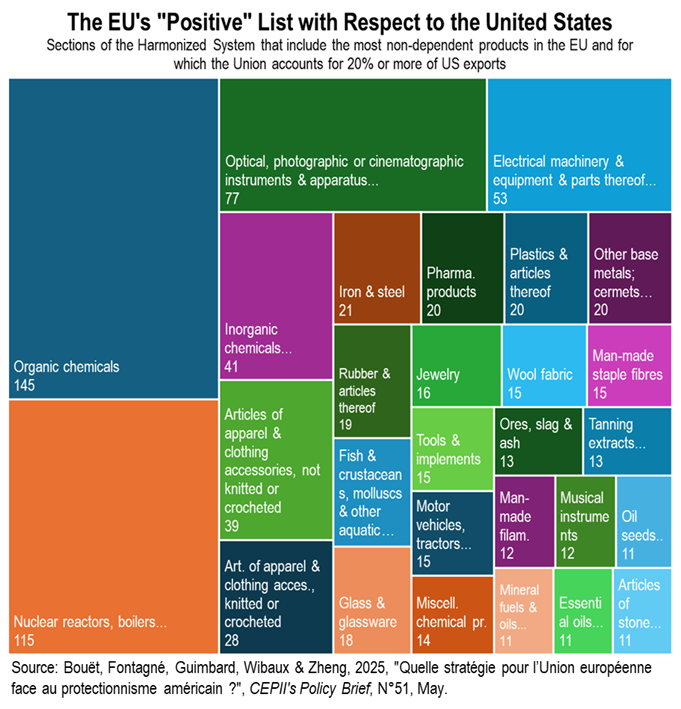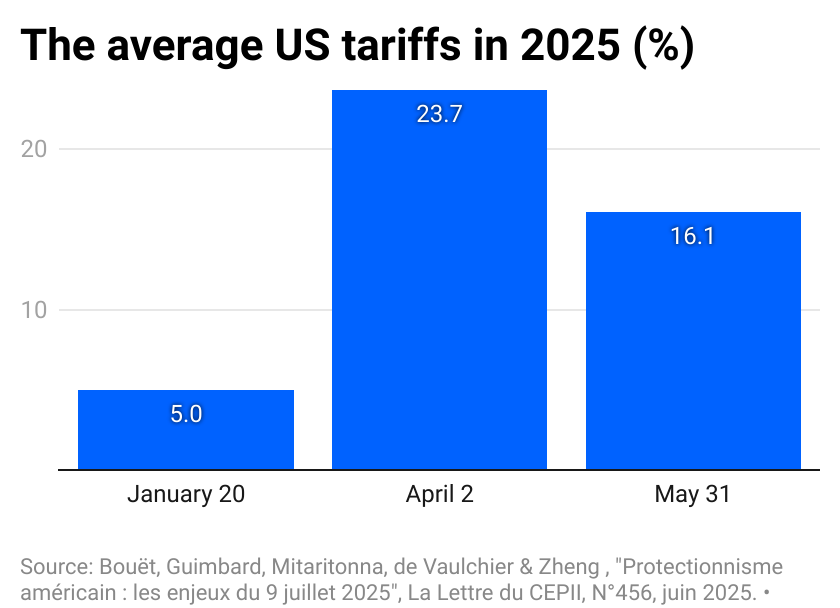This Working Paper examines the evolution of France's carbon footprint from 2000 to 2014, with a particular focus on the role of international trade. During this period, France's territorial emissions decreased by 18%, yet its consumption-based footprint declined by only 5%. This modest reduction reflects an increase in emissions embedded in imports, which grew from 45% to 54% of the total. Employing a novel structural decomposition analysis, the authors disentangle the contributions of scale, composition, and technique effects from a consumption perspective. The paper's approach advances traditional methods by explicitly distinguishing between domestic and foreign influences and by separately analyzing trade openness and the geographic reallocation of trade flows. The results underscore the dominance of the technique effect in reducing emissions (-28%), driven primarily by efficiency improvements abroad. However, the geographic composition effect led to a substantial increase in emissions (+18%), especially due to shifts toward more carbon-intensive trading partners prior to 2008. This pattern - characterized by a growing reliance on foreign improvements for emission reductions - likely foreshadows developments in other developed economies as domestic decarbonization advances. It highlights the need for greater coordination between trade and climate policies. Pierre Cotterlaz, Christophe Gouel
>>> |
Discussion at the Club of the CEPII Trump’s second term shows early signs of a transactional and confrontational foreign policy, using economic tools to pressure allies and foes, increasing global uncertainty. Contributors to a recent CEPR e-book "The Economic Consequences of The Second Trump Administration: A Preliminary Assessment" doubt his goals - cutting the trade deficit, boosting industry, and creating high-paying U.S. jobbs - could be achieved. Thierry Mayer (Sciences Po et CEPII), Giovanni Peri (University of California) and Thibaut Mommeja (CEPR) shared their insights. Their presentations are available for download.
>>> |
- Transatlantic Tariff Negotiation: "Positive versus Negative" List Strategy for the European Union
Antoine Bouët, Lionel Fontagné, Houssein Guimbard, Pauline Wibaux, Yu Zheng - Rise in American Protectionism: A Certainty Amid Trade Chaos
Antoine Bouët, Houssein Guimbard
- Outsourcing Decarbonization? How Trade Shaped France’s Carbon Footprint (2000–14)
Pierre Cotterlaz, Christophe Gouel - Carbon Bias of Tariffs: Are Fossil fuels the Culprits?
Cecilia Bellora, Lionel Fontagné, Christophe Gouel, Youssef Salib - Does Immigration Affect Native Wages? A Meta-Analysis
Clément Nedoncelle, Léa Marchal, Amandine Aubry, Jérôme Héricourt - The Vicious Circle of Xenophobia: Immigration and Right-Wing Populism
Frédéric Docquier, Hillel Rapoport - Ownership Chains in Multinational Enterprises
Stefania Miricola, Armando Rungi, Gianluca Santoni
- First estimations of the effects of reciprocal tariffs
in The Economic Consequences of The Second Trump Administration: A Preliminary Assessment, CEPR Press
Antoine Bouët - National security tariffs on the auto industry
in The Economic Consequences of The Second Trump Administration: A Preliminary Assessment, CEPR Press
Keith Head, Thierry Mayer, Vincent Vicard, Pauline Wibaux
Presentation of the CEPII's annual publication "L'économie mondiale 2026"
September 10, 2025
The economic consequences of Mr. Trump's second "first hundred days"
The Club of the CEPII's session. Presentations available online
Transatlantic Tariff Negotiation: "Positive versus Negative" List Strategy for the European Union How can Europe identify the threat of trade retaliation that allows it to establish the strongest negotiating position in dealing with the United States in merchandise trade alone? Antoine Bouët, Lionel Fontagné, Houssein Guimbard, Pauline Wibaux, Yu Zheng >>> |
Rise in American Protectionism: A Certainty Amid Trade Chaos Regardless of future US decisions, a return to the preexisting global trade order seems unlikely: trade with the United States is bound to become more expensive and more difficult. Antoine Bouët, Houssein Guimbard >>> |

Since January 2025, we have been publishing our new series LE Graphique - THE Chart. Twice a month, we feature a blog post with an insightful chart to unravel the latest in global economic trends. 15 publications are available on our blog so far.
>>> |
- Contact us
- Our other sites
 |
ISSN: 1255-7072
Editorial Director : Antoine BouëtManaging Editor : Evgenia Korotkova












